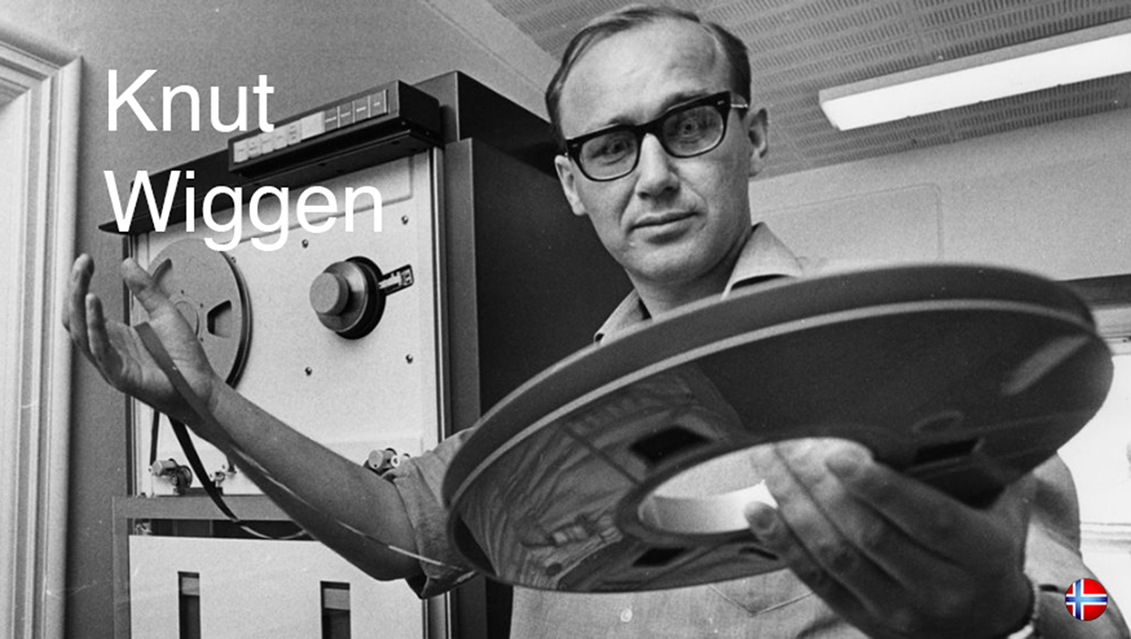Fylkingen - concerts and events
Fylkingen was established in Stockholm in 1933 with the goal of making new Swedish music - chamber music, song and solo pieces - better known for both public and critics through a series of concerts. In the beginning, Fylkingen collaborated with Folkkonsertförbundet and Stockholm's Borgarskola, and classical and modern music were presented under the leadership of chairman Ingemar Liljefors.
During the mid-1950's Swedish Radio began to play new Swedish chamber music, and Knut Wiggen, an active member of Fylkingen since 1957, thought Fylkingen should change direction and - instead of playing chamber music - play the newest music from Europe and the USA, including electronic music. Wiggen suggested a change in the program at a board meeting in 1959, and when his suggestion won with 3 against 2 votes, he took over as Fylkingen's 7th chairman.
Knut Wiggen remained Fylkingen's chairman for 10 years (1959-1969). During this time, he introduced electronic music, happenings and instrumental theater in Sweden. He reorganized Fylkingen, formed work groups and received ever increasing funding from the local and central government. One of the work groups that he had established, the 'Theory group", was started because contemporary music's aesthetics, technical terminology and performance conditions were so hard to understand. The group consisted of Wiggen, music researcher and professor Ingmar Bengtsson, docent in philosophy Erik Götlind and scientific theorist Carl Lesche, and their work resulted in Fylkingen’s 'information concerts', and provided material for Ingmar Bengtsson's book - 'Musikvetenskap : en översikt', 1973.
Fylkingen's goals and activities became quite unique in Europe, and as a consequence of the concert program's content, the venue was moved from the Concert Hall to the Modern Museum at Skeppsholmen. Wiggen built up a large international network with avant-garde artists, and arranged Fylkingen's series of approximately 100 concerts at this new venue. Pierre Schaeffer, Karlheinz Stockhausen, Robert Rauschenberg, John Cage, David Tudor, the Merce Cunningham Dance Company, Iannis Xenakis, Nam June Paik and Gottfried Michael Koenig are among the many renowned composers and performers that participated in these concerts.
Wiggen also took the initiative to organize a Scandinavian music collaboration featuring concert tours with new music between Denmark, Norway and Sweden. This work went well, but after being placed under the newly established Rikskonserter's administration, much of Wiggen's original concept was changed.
Fylkingen’s suggestion for establishing a national recording company came at Wiggen's initiative. Stig Carlsson, civil engineer at KTH Royal Institute of Technology in Stockholm, was affiliated with Fylkingen during Wiggen's period as chairman, and recorded approximately half of the concerts from the 1960’s on tape. Fylkingen’s 'record company group' investigated the possibilities for producing records with content from Fylkingen's concert series. This suggestion became a reality during the 1960's. Wiggen, using Stig Carlsson's recording techniques, produced two records with John Cage's Sonatas and Interludes for prepared piano with Yuji Takahashi as soloist. These records are still for sale from Fylkingen today.
For those interested in Fylkingen's history from 1933-1993, Teddy Hultberg's book from 1994, "Fylkingen - Ny musik & Intermediakonst”, is recommended.
- Carol van Nuys, 2018
